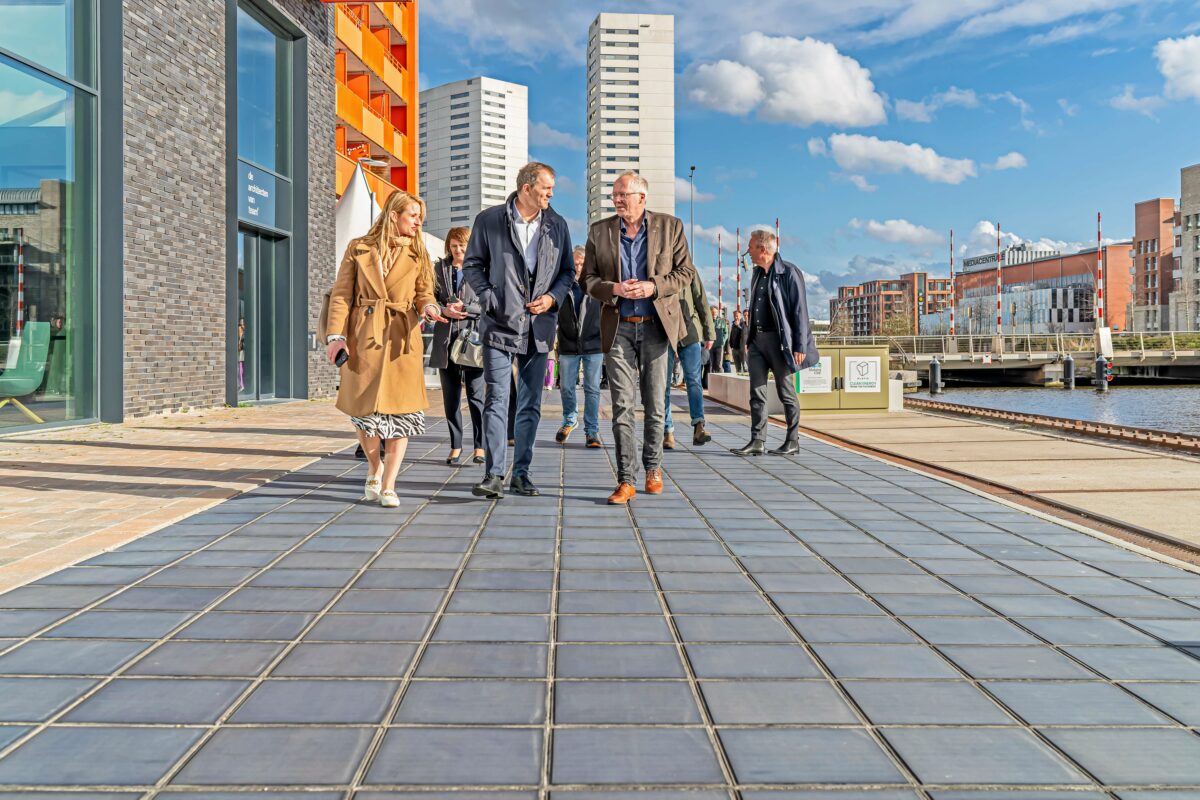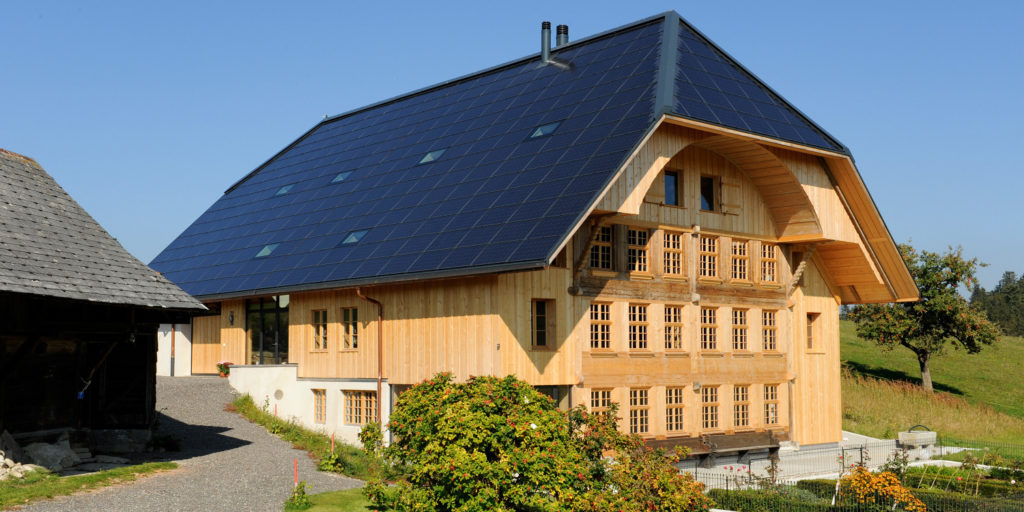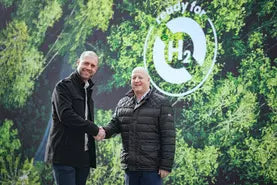https://www.pv-magazine.com/2023/04/05/dutch-city-installs-solar-footpath/
Dutch city installs solar footpath
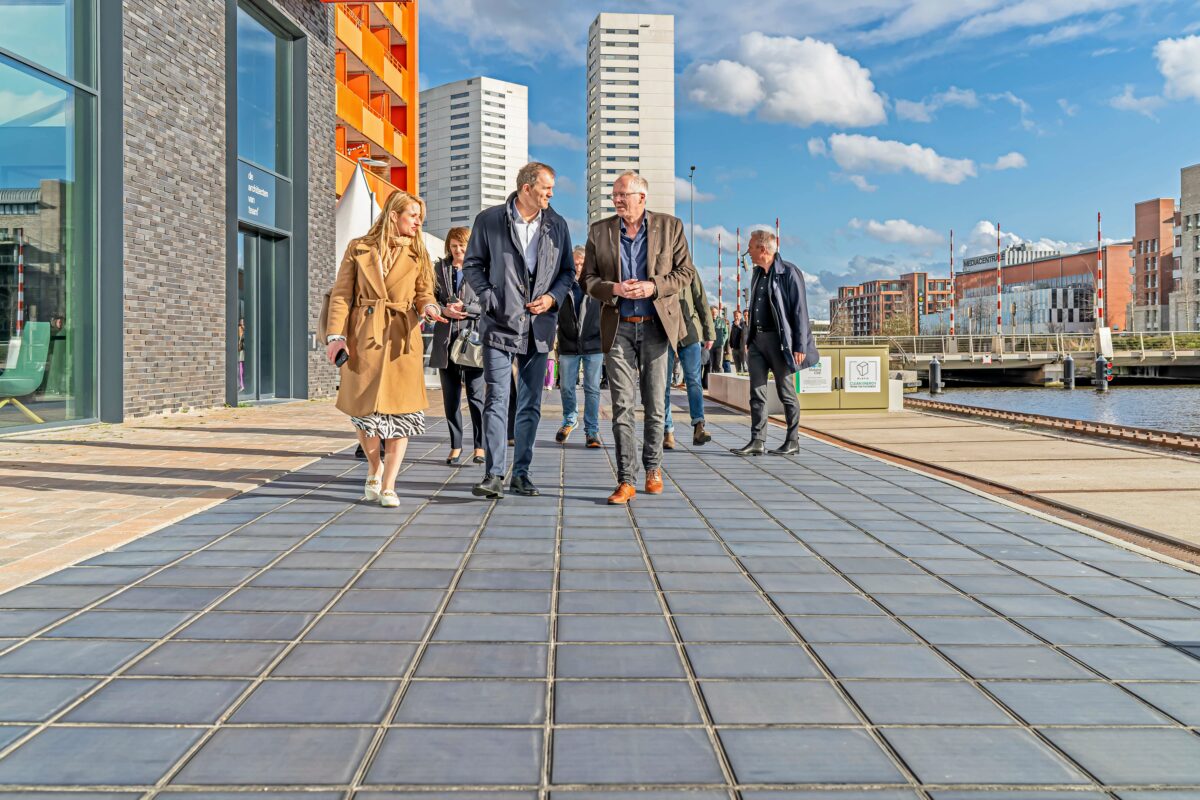
Solar footpath in Groningen, the Netherlands
Image: Platio
Hungary-based Platio has developed a damage-resistant path made of solar tiles. The solar footpath, which spans 400 square meters, was recently installed in Groningen, the Netherlands, as part of the “Making City” European Union project.
“Our patented technology has been developed so no microcracks appear in the solar cell and do not affect the performance,” Helga Ruscsák, marketing manager at Platio, told pv magazine when asked about mechanical stress. “This rule is valid under intended use, i.e. if a Platio solar paver is not subjected to a pressure of more than 2 tons. Therefore it is safe to walk on it.”
The solar footpath consists of 2,544 solar pavers. It will generate 55,000 kWh of electricity a year to power Groningen's city hall. Platio’s solar pavers are made of four monocrystalline cells with 21.5 W output and 21.8% efficiency. The open-circuit voltage is 2.69 V and the short circuit voltage is 10.5 A. Each cell measures 158.75 mm x 158.75 mm while the solar paver module measures 353 mm x 353 mm x 41 mm and weighs 6.5 kg. The module is covered by a 10 mm temperated opal glass and its frame is made of a recycled polymer composite. It comes with a 5-year warranty.
The Platio solar paver is suitable for pavements, terraces, driveways, and bicycle roads, among others. Vehicles weighing up to eight tons can purportedly drive on it.
Popular content
“Platio solar pavers are doubly sustainable because they not only provide green energy but are made of recycled plastic,” said Philip Broeksma, council of energy from the municipality of Groningen. “And it makes double use of space: the solar footpath generates electricity, while people can simply and safely walk on it. It is an example of how to use space in the city in a smart and sustainable way.”
The system’s performance is being monitored through an app. When it was inaugurated on March 24, it reportedly produced enough electricity to power 47 Dutch houses for one day. The EU Making City project aims to develop Positive Energy Districts (PED), demonstrating the potential of innovative solutions to tackle climate-neutral goals.
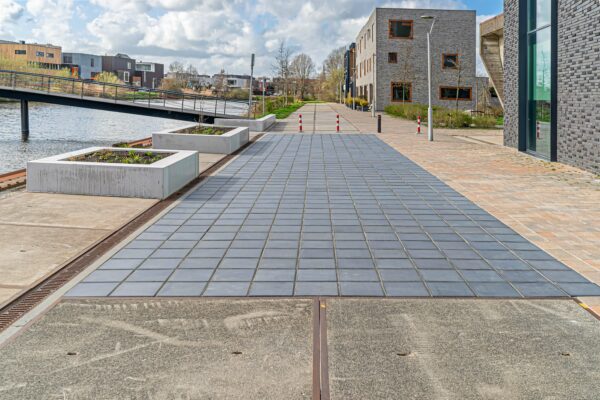
Image: Platio
This content is protected by copyright and may not be reused. If you want to cooperate with us and would like to reuse some of our content, please contact: editors@pv-magazine.com.
